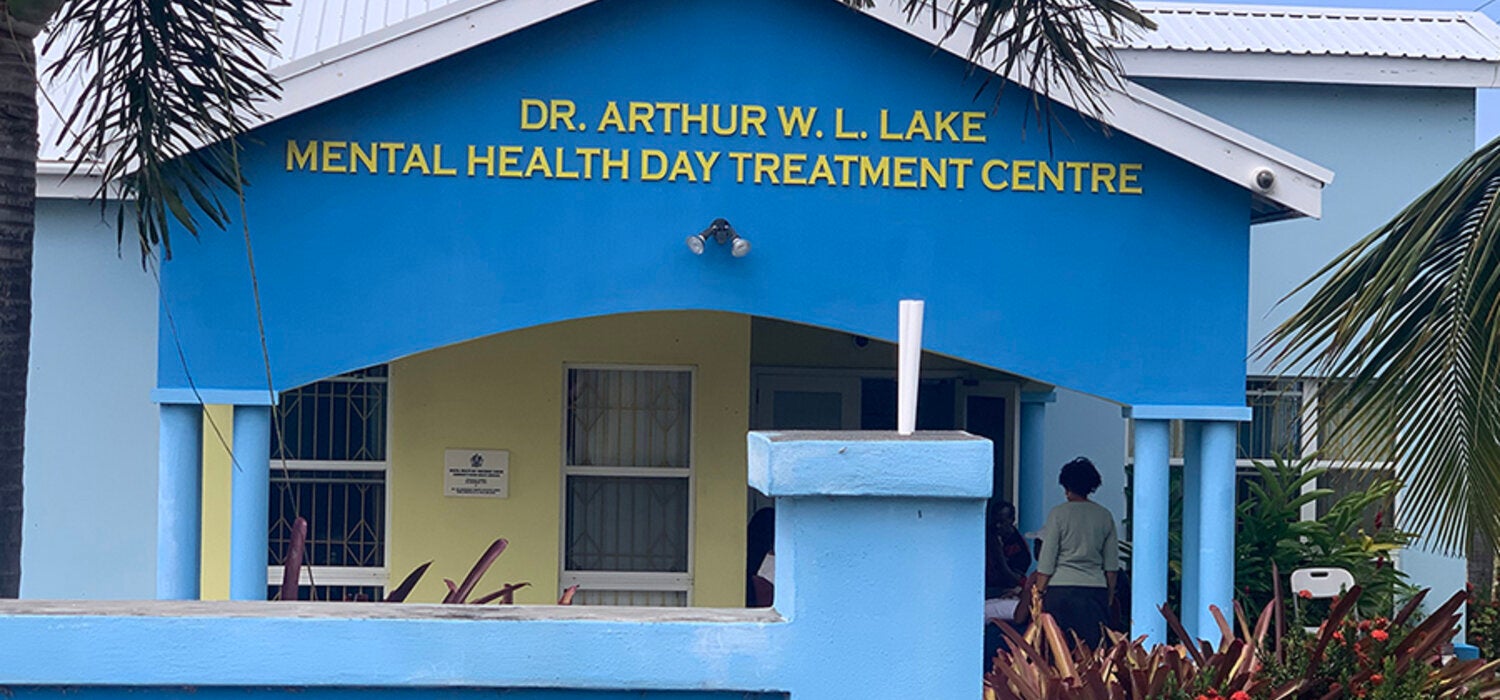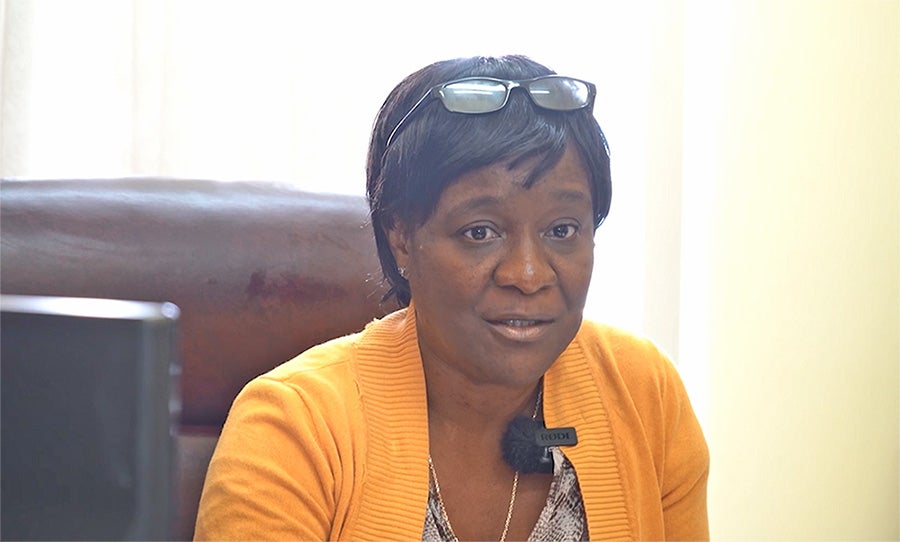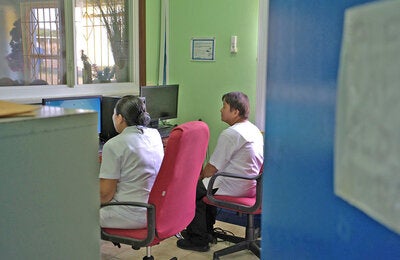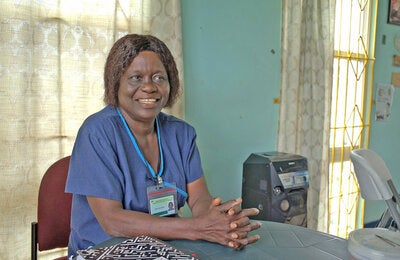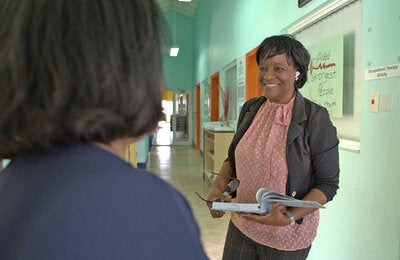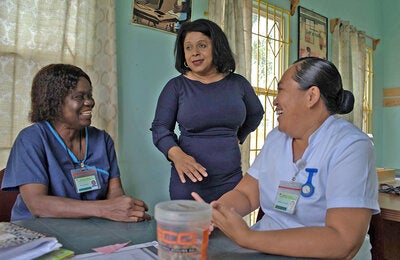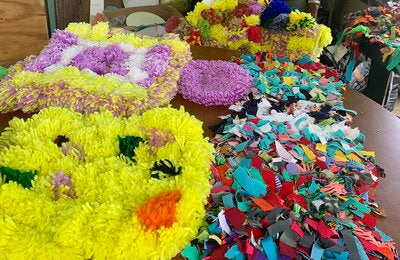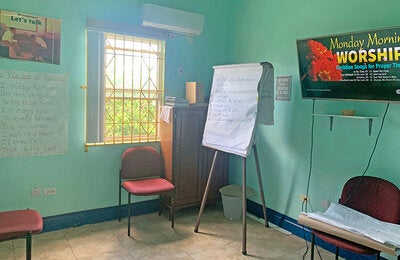At first glance the structure shown above could easily be mistaken for a dwelling house, this appears to be part of the plan, giving the Centre a “home like feel”. Upon entry, there is absolutely nothing eerie, or out of sorts, nothing like the negative picture painted of mental illness or its facilities time and time again.
The Centre’s energy is that of a community house offering services to its members, this space not only offers the opportunity for rehabilitation, but it is also a home away from home for many, a safe place designed to nurture and protect.
Understanding Mental Wellness
The challenge of understanding the importance of mental wellness is not a new one, in fact, the stigma attached to mental disorders has cast such a dark shadow on those affected, hindering the opportunity for treatment, leaving individuals afraid, alone, and misunderstood. The notion of mental illness being supernatural (demonic possession) is still very much alive today, lack of education has contributed vastly to this calamity.
Where do we begin? Is there a guidebook to help us navigate the intricate and delicate state of our minds? A good start is understanding the difference between Mental Health/Wellness and Mental Disorders.
According to the World Health Organization (WHO), mental health is “A state of well-being in which the individual realizes his or her own abilities, can cope with the normal stresses of life, can work productively and fruitfully, and is able to make a contribution to his or her community”.
On the flip side, “A mental disorder is characterized by a clinically significant disturbance in an individual’s cognition, emotional regulation, or behaviour". It is usually associated with distress or impairment in important areas of functioning.
Stigma & Discrimination “ Crazy People”
Stigma and discrimination continue to be a deterrent when accessing mental health care, this is not unique to the region it is an unfortunate global challenge. There is hope however, as more emphasis is placed on upgrading mental health care, inclusive of treatment centers and medical staff along with accessibility.
The days of terms like “crazy people, loonies, not right in the head or being possessed” are slowly but surely becoming a thing of the past but there is still much work to be done.
The Dr. Arthur W. L. Lake Mental Health Day Treatment Centre in the Federation of St. Kitts & Nevis is working towards that goal.
The Centre had a soft opening in 2016 and accepted its first patient in September 2017. On February 20th, 2018, it was be renamed the Dr. Arthur W. L. Lake Mental Health Day Treatment Centre after Dr. Arthur Lake, who established the St. Kitts Mental Health Association and took the lead in setting up Mental Health Clinics in the Federation. His devotion to psychiatric medicine saw him going the extra mile to see mentally ill patients at his office on Fort Street Basseterre. He was a mental health pioneer.
The Ministry of Health St. Kitts - The Driving Force
Dr. Sharon Archibald is the Permanent Secretary in the Ministry of Health, the Day Treatment Centre falls under her purview.
What is the difference between the psychiatric facility at the Hospital and the Mental Health Day Treatment Centre? Dr. Archibald explained...
“The facility at the hospital is the acute centre, persons with mental illness (psychotic) who need to be stabilized are treated there, whereas the Day Treatment Centre serves as a bridge between hospital care and community. This is where the rehabilitation takes place where the emphasis is on recovery.”
In a perfect world, a productive society is a healthy one, unfortunately, there are so many triggers that can lead to a breakdown in our mental capacity, leaving us stripped of the ability to function effectively in the workplace or at home. The world in which we exist is a very demanding one, making us subject to some form of mental disorder at any given stage of our lives. How we treat this fallout along with the support system available is dire. Meditation and relaxation may work in the less severe cases as opposed to medication and rehabilitation in the more severe.
Have you ever felt low, sad or had difficulty dealing with high level stress situations? For many, the roller coaster of emotions may last for a short period, one is able to cope, and life goes on. For others, this is their life…

